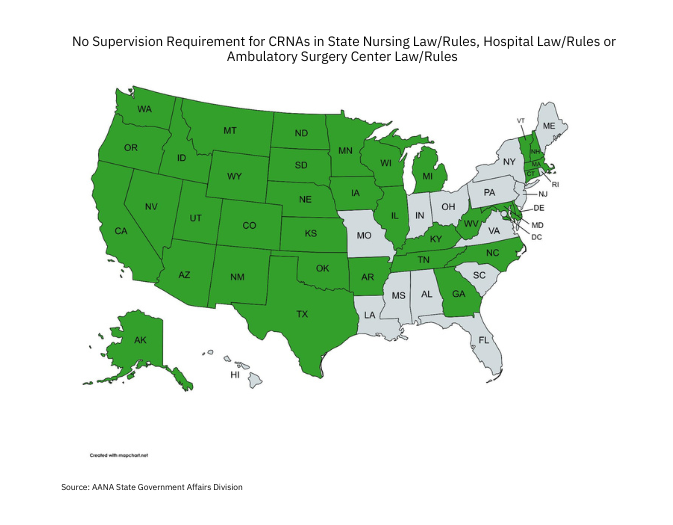The Issues
Restricting CRNA Practice Reduces Access to Care and Increases Costs
Restricting CRNA practice is contrary to the national trend toward allowing APRNs to practice to the full extent of their education and training.
Allowing CRNAs to practice to the full extent of their training and education improves your access to high quality, cost-effective care, and decreases your healthcare costs. Unnecessary restrictions on CRNA practice are not cost-effective and actually increase healthcare costs. Further, imposing such restrictions on CRNA practice is not supported by published research.

Supervision Requirements
In 35 states, there is no Supervision Requirement for CRNAs in State Nursing Law/Rules, Hospital Law/Rules, or Ambulatory Surgery Center Law/Rules.
In 44 states, the nursing laws/rules do not require physician supervision of CRNAs.
Essential Access to Anesthesia Care
Research shows that CRNAs are the most cost-effective anesthesia providers and that there is no difference in safety between CRNAs and anesthesiologists. CRNAs provide essential access to anesthesia care, especially in rural and other medically underserved areas in our state and the rest of the United States.
Support the ability of CRNAs to provide high quality, cost-effective care to this state’s patients without unnecessary restrictions.

